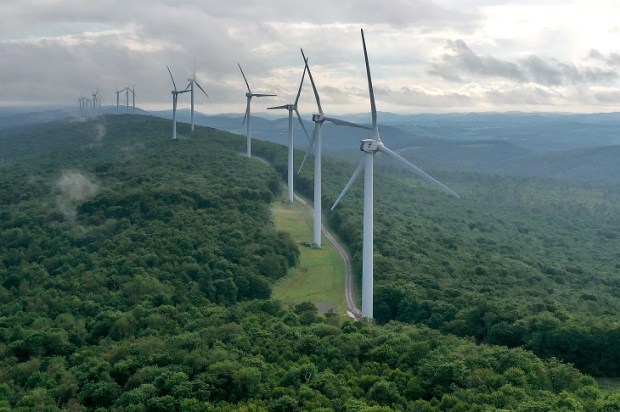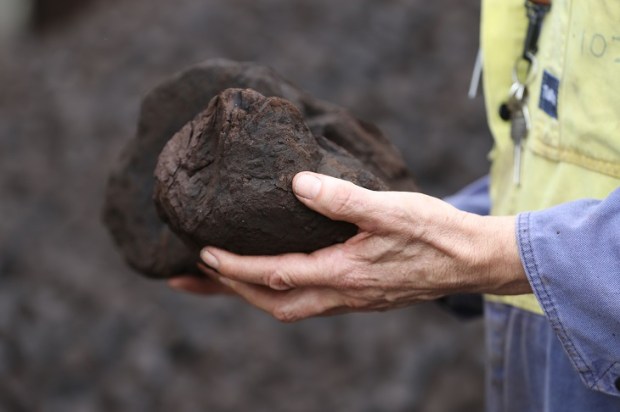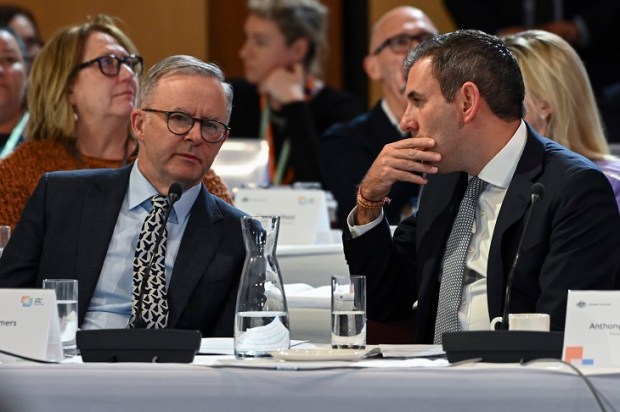Last week saw the collapse of Sun Cable, a pie-in-the-sky $35 billion plan by alternative energy enthusiasts, Andrew Forrest and Mike Cannon-Brookes, to generate solar energy and transport it by cable 4,200 kilometres to Singapore. The taxpayer provided $14 million for the project’s solar system, Australian-developed 5B. But major spending, which amounted to $210 million before Andrew Forrest pulled the plug, came from the two entrepreneurs.
Last week also saw Energy Minister Chris Bowen release his consultation for the disarmingly named Powering the Regions Fund. A centrepiece of this was weaponising the ‘Safeguard Mechanism’ from the emission reporting requirement that the Coalition introduced, into a requirement that the top 215 facilities reduce their emissions by 30 per cent by 2030 or buy carbon credits at a cost of up to $75 per tonne.
This cost, which is three times that envisaged by Julia Gillard’s 2012 carbon tax, comes on top of a host of other regulatory requirements, tax concessions, and direct government funding. In 2019, these wasted $7 billion a year, a cost that has since been increased by requirements on users to fund transmission lines for wind/solar, battery subsidies, Snowy 2, and government premium-priced contracts to purchase the output of renewable energy facilities.
An Australian Financial Review editorial praised Minister Bowen’s announcement of additional imposts designed to eliminate fossil fuels, absurdly arguing it gives guidance and greater certainty. The Australian Financial Review claimed the Bowen policy for the energy ‘transition’ will bring the necessary investment, which it puts at $420 billion, a sum it compared to that spent on the post-2010 energy resurgence. But this is a hopeless underestimate (it is easy to see some $6,000 billion – over twice annual GDP – being required simply for batteries to firm-up a Net Zero emissions energy system). Moreover, far from boosting living standards, money for the energy ‘transition’ will seriously reduce incomes by diverting investment funds into expenditures that raise costs to industry and consumers.
Unsurprisingly, in view of the constant increase in regulatory cost burdens on Australian firms’ energy, Minister Bowen also canvassed the possibility of a tax on the carbon component of imports. While sheltering domestic firms from some government-imposed costs, this raises prices for Australian consumers – and it takes Australia into a form of beggar-thy-neighbour protectionism that propelled the world’s leading nations into the 1930s Depression.
The Prime Minister apparently sees this trend as inevitable; in urging Australia to get on board with decarbonising energy, he said, ‘You can’t pretend that we’re not going to have carbon barriers and tariffs placed by Europe, by the United States, and other advanced economies.’
Industry has expressed support for most taxes designed to suppress carbon dioxide emissions.
This is in contrast to industry opposition to the 2012 ALP government’s Carbon Tax and Resource Super Profit Tax, both of which were repealed by the Abbott Coalition government in 2014. Thus the Business Council praised it as ‘the Safeguard Mechanism to help reduce Australia’s emissions’ and the Australian Industry (AI) Group welcomed it alongside the proposal to tax the carbon input on imports.
The divergent approach stems from the interests of the leading movers within the representative bodies. Present carbon tax policies and proposals, rather than funnelling money to Treasury, are designed to redirect money from one group of businesses (and consumers) to other groups. Those seeing themselves as beneficiaries will campaign for the measures. The deleterious consequences for the economy at large are, for the lobby groups themselves, dwarfed by prospects of immediate gain. This is all the more so since so many within the lobby groups – like Messrs Forrest and Cannon-Brookes – are infected by the ideology which has promoted renewable energy as a new Nirvana.
Minster Bowen certainly shares their view, saying, ‘I don’t accept economic damage as a result of climate policy,’ and that his approach provides, ‘industry, heavy industry with the necessary information to get on with the investment and the transition to renewables.’ He maintains, ‘This is pro jobs, pro investment, and pro competitiveness.’
Predictably, Chris Bowen also failed to learn anything from the Sun Cable collapse. He said he remains ‘very upbeat and excited’ about Sun Cable’s future, which he described as having a vital role in Australia becoming a renewable export energy superpower.
Bowen’s firm views on how energy supply should be managed in the future are reminiscent of those held by a previous ALP energy zealot, Rex Connor. Fifty years ago, Connor, in the Whitlam government, tried to raise a sum similar to that envisaged for Sun Cable, for energy and mineral development in order to replace private with government control. Had his will prevailed, the outcome would have strangled at birth the resources resurgence of later years that has underpinned our present living standards.
Got something to add? Join the discussion and comment below.
Get 10 issues for just $10
Subscribe to The Spectator Australia today for the next 10 magazine issues, plus full online access, for just $10.


























Comments
Don't miss out
Join the conversation with other Spectator Australia readers. Subscribe to leave a comment.
SUBSCRIBEAlready a subscriber? Log in